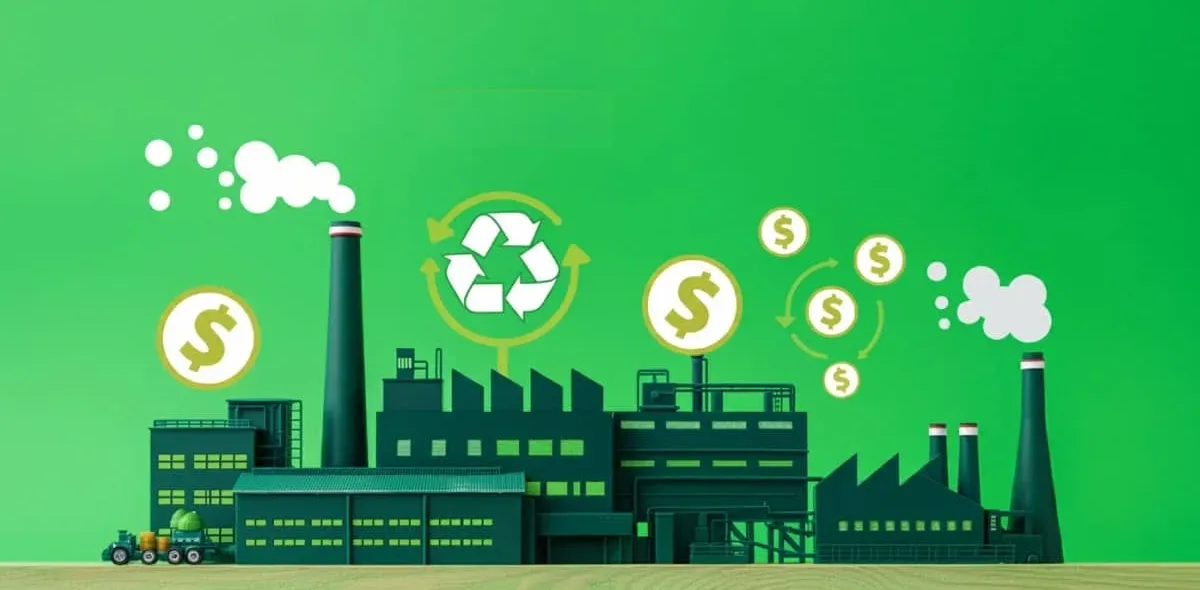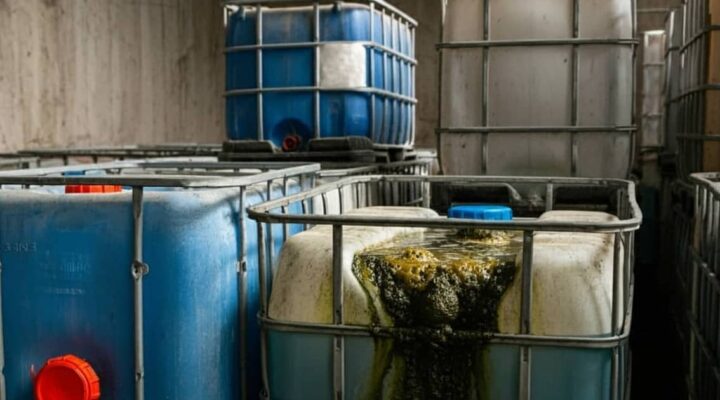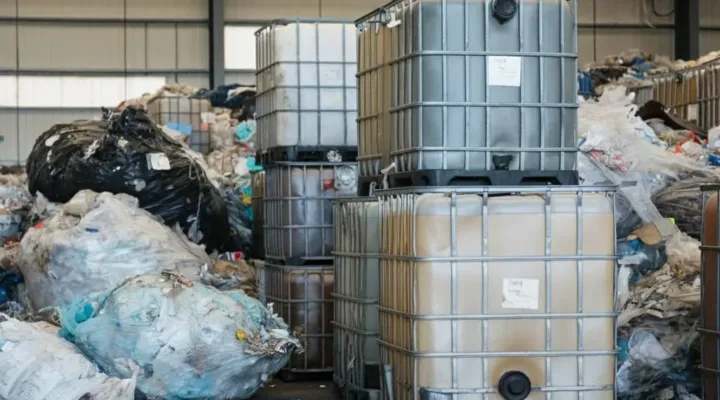Understanding the costs associated with scheduled waste disposal is crucial for businesses in Malaysia to effectively manage their waste and ensure compliance with regulations. Proper waste management not only ensures adherence to legal requirements but also helps businesses control, optimize, and potentially reduce their waste-related expenditures over time. A well-planned waste management strategy can prevent unexpected costs, protect a company’s reputation, and contribute to broader environmental sustainability goals. This blog will provide a comprehensive breakdown of the costs involved in scheduled waste disposal, including collection, treatment, storage, transportation, and the financial implications of non-compliance.
Cost Components of Scheduled Waste Disposal
Managing the costs of scheduled waste disposal can be complex, as various factors influence overall expenses. Businesses need to consider collection, treatment, storage, and transportation costs, each of which plays a significant role in determining the final expenditure. Moreover, regulatory compliance and the potential for fines add additional layers to the cost structure. Below, we delve into the key cost components involved in scheduled waste disposal to provide a clearer understanding of how to manage them efficiently.
Storage Costs
Temporary storage of scheduled waste before disposal is one of the key factors contributing to disposal costs. Businesses must store scheduled waste in compliance with safety regulations, which often means investing in specialized storage containers and infrastructure. Additionally, companies must ensure proper labeling, segregation, and containment of waste to prevent environmental contamination and ensure worker safety. Failure to meet these requirements could lead to increased costs due to fines, corrective actions, or even suspension of operations. Storage costs also include the maintenance and monitoring of storage facilities to ensure they remain compliant over time. The costs can escalate if businesses generate large volumes of waste, requiring expanded storage facilities or additional infrastructure to accommodate the increased quantities.
Treatment and Processing Costs
Treatment and processing costs are a significant consideration for businesses in scheduled waste management. The specific treatment required depends on the waste’s hazardous properties, with common methods including neutralization, incineration, and recycling, each carrying distinct cost implications. Complex waste streams often necessitate multi-step processes before final disposal, adding layers of expense. For example, certain hazardous chemicals may require pretreatment such as neutralization or high-temperature incineration to meet safety and environmental standards. From a manufacturer’s perspective, these pretreatment processes, while essential for compliance, increase operational complexity and costs. Additionally, treatment expenses are influenced by the availability of specialized facilities and advancements in technology. While limited infrastructure may drive up costs, innovative solutions can potentially reduce them, offering a pathway to more efficient and sustainable waste management practices.
Transportation Costs
Transportation costs are one of the primary expenses associated with scheduled waste disposal. Scheduled waste must be transported using certified vehicles that comply with safety standards to prevent spillage or accidents during transit. These costs can vary significantly based on factors such as the volume of waste, the frequency of collection, and transportation requirements. The type of waste being collected also influences the cost, with hazardous materials requiring specialized handling and transportation methods that meet stringent safety standards. Additionally, the location of the waste generation site plays a crucial role—remote locations often incur higher transportation fees.

Disposal Costs
For businesses, opting to dispose of waste through licensed external contractors rather than processing it internally can lead to significant cost savings. By outsourcing disposal, businesses eliminate the need for investments in specialized treatment facilities, equipment, and the ongoing operational costs of maintaining internal waste processing systems. This approach also reduces the risk of non-compliance, as licensed contractors are equipped to handle scheduled waste in full accordance with regulatory standards. Furthermore, outsourcing allows businesses to focus on their core operations while benefiting from streamlined waste management solutions. Choosing the right licensed contractor who offers efficient disposal services can help businesses control and optimize these costs. In some cases, long-term contracts with waste collection providers can also result in cost savings through negotiated rates.
Regulatory Compliance Costs
Regulatory compliance is a critical aspect of scheduled waste management for businesses in Malaysia. Ensuring adherence to regulations not only prevents fines and legal issues but also demonstrates a commitment to environmental sustainability and public safety. While licensing and permits are primarily required for waste management contractors, waste generators still bear costs related to compliance, particularly in maintaining proper documentation and meeting reporting obligations.
Documentation and Reporting
For waste generators, one of the most significant compliance costs is related to maintaining accurate records and reports. Businesses must track the type, volume, and disposal method of their scheduled waste using the Electronic Scheduled Waste Information System (eSWIS) by Department of Environment (DOE). Failure to maintain proper documentation can result in fines or other penalties. Administrative costs may include hiring personnel dedicated to compliance tasks.
Accurate record-keeping is essential for audits and inspections by regulatory authorities. Businesses must also update documentation to reflect any changes in their operations, such as increases in waste volume or changes in disposal methods.
By proactively addressing these compliance requirements, businesses can avoid the financial and reputational risks associated with non-compliance while contributing to sustainable waste management practices.
Fines and Penalties for Non-Compliance
Failing to comply with scheduled waste disposal regulations can result in significant financial repercussions and legal consequences. These penalties are designed to ensure businesses adhere to best practices for environmental safety and public health. The fines and penalties can be both direct and indirect, impacting not only a company’s finances but also its reputation and operational continuity. Below, we explore the potential fines and other repercussions of non-compliance in greater detail.
Potential Fines
Non-compliance with scheduled waste disposal regulations can lead to significant financial penalties. Fines can be imposed for infractions such as improper classification, incorrect storage, or failure to document waste management activities adequately. The Environmental Quality Act 1974 stipulates strict penalties to deter non-compliance, with fines that can escalate based on the severity and frequency of violations. Repeat offenses often attract harsher penalties, which can include not only fines but also legal actions and possible imprisonment of responsible personnel. Non-compliance can also lead to increased insurance premiums, as companies that violate regulations may be deemed high-risk by insurers. Furthermore, businesses may be subject to additional fees for emergency cleanup and remediation if improper waste disposal leads to environmental contamination.
Indirect Costs
In addition to direct fines, non-compliance can lead to substantial indirect costs. These may include operational disruptions, reputational damage, and the costs of environmental remediation if improper disposal leads to contamination. Businesses may also face increased scrutiny from regulators, leading to more frequent inspections and additional compliance costs in the long term. Reputational damage can result in the loss of business opportunities, as clients and partners may be reluctant to engage with companies that do not prioritize environmental responsibility. Additionally, the costs of public relations efforts to rebuild a tarnished reputation and the potential loss of skilled employees who prefer to work for environmentally conscious organizations are further indirect consequences of non-compliance.
Strategies to Reduce Scheduled Waste Disposal Costs
Reducing the costs associated with scheduled waste disposal requires a strategic approach that involves minimizing waste generation, selecting the right partners, and embracing innovative technologies. Below are some of the key strategies businesses can adopt to manage and lower their waste disposal expenses.
Waste Minimization
One of the most effective ways to reduce scheduled waste disposal costs is to minimize the volume of waste generated. By adopting cleaner production processes and implementing waste segregation at the source, businesses can significantly reduce the quantity of scheduled waste requiring disposal. Waste minimization not only cuts down on collection and treatment costs but also contributes to sustainability initiatives. Implementing lean manufacturing techniques and continuous improvement processes can help identify areas where waste can be reduced or eliminated. Employee training and awareness programs are also crucial, as they encourage staff to adopt practices that minimize waste generation at every stage of production.
Partnering with Licensed Contractors
Selecting the right waste management partner can lead to considerable cost savings. Licensed contractors who provide end-to-end waste management solutions, including collection, treatment, and documentation, can streamline the disposal process and help businesses manage costs more efficiently. By working with contractors experienced in scheduled waste disposal, businesses can ensure compliance while minimizing the risk of costly mistakes. Contractors who offer value-added services, such as on-site assessments and tailored waste management plans, can further enhance efficiency and reduce costs. Additionally, long-term partnerships with reliable contractors can lead to negotiated discounts and preferential service terms, which can provide significant financial benefits.
Innovative Waste Treatment Solutions
Exploring advanced treatment options that are both cost-effective and environmentally friendly can further reduce disposal costs. For example, some treatment facilities like Metahub offer resource recovery services, which allow businesses to reclaim valuable materials from their waste. This not only helps offset disposal costs but also supports circular economy initiatives, turning waste into a resource. Investing in new technologies, such as waste-to-energy systems or advanced filtration, can reduce the need for traditional disposal methods, thereby lowering costs over time. Collaboration with technology providers and participation in pilot programs for innovative waste treatment solutions can also open opportunities for grants or subsidies, making these options more financially viable.
Conclusion
The costs associated with scheduled waste disposal in Malaysia encompass several components, including collection, treatment, storage, transportation, and compliance-related expenses. Understanding these costs helps businesses make informed decisions, ensure compliance, and effectively manage their waste disposal budget. Proper planning, waste minimization, and partnering with experienced waste management contractors are crucial strategies for controlling costs and avoiding penalties. By adopting innovative solutions and focusing on sustainability, businesses can turn waste management from a financial burden into a strategic advantage that supports environmental goals and improves operational efficiency.
For expert guidance on managing scheduled waste disposal costs effectively, contact Metahub today. Our team can help you navigate the complexities of waste management while ensuring full compliance with Malaysian regulations.





